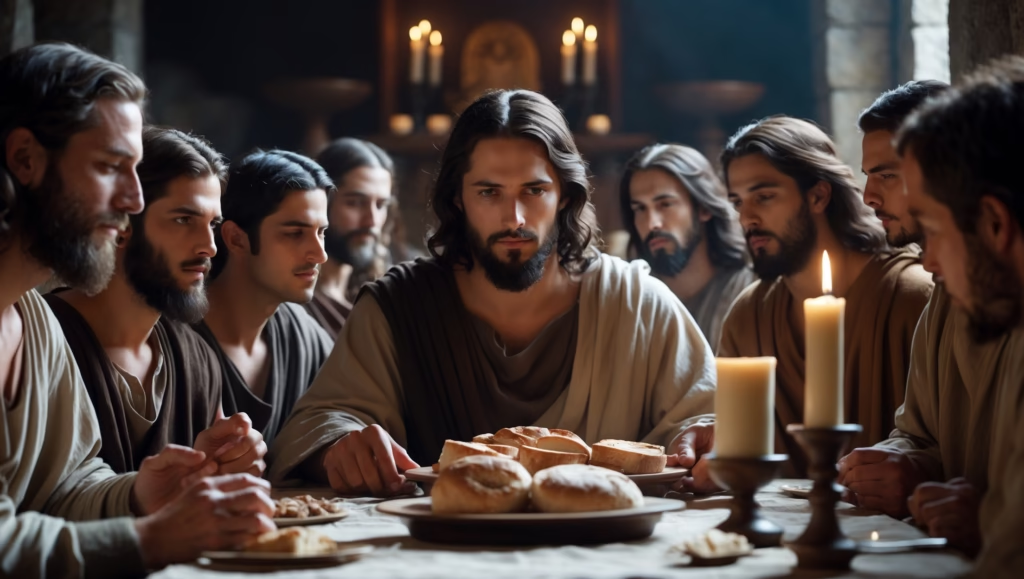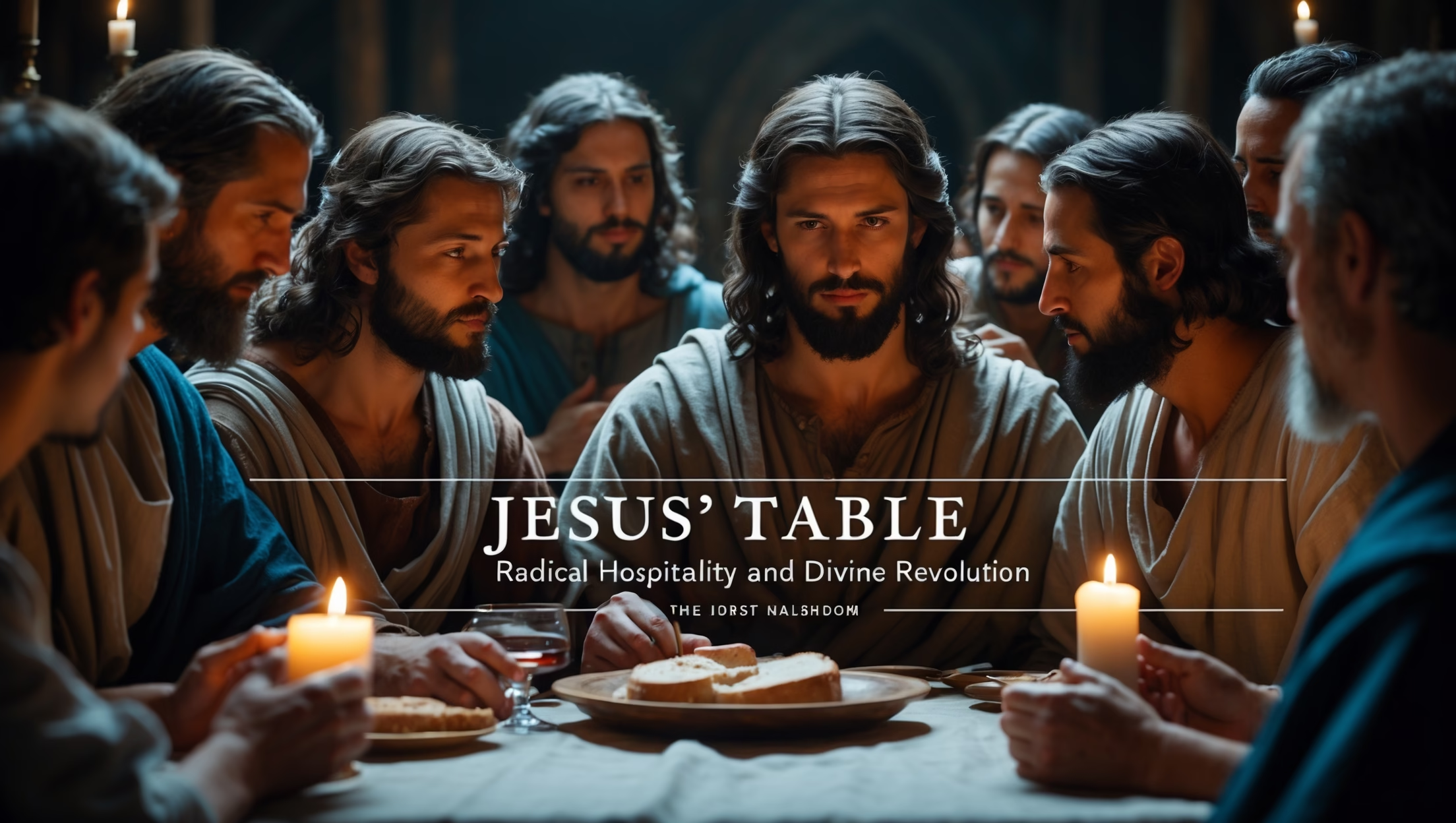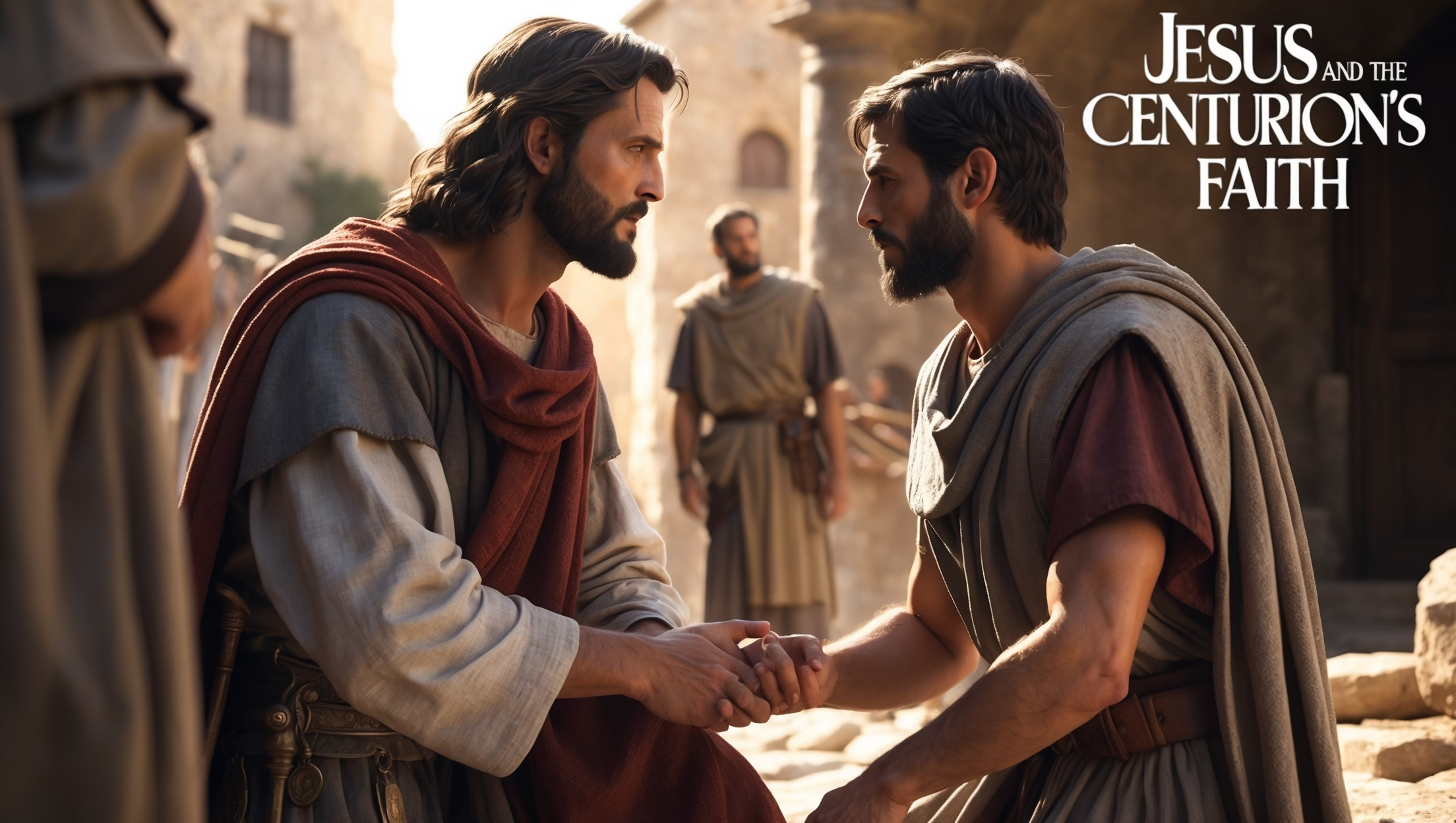Jesus didn’t merely preach from synagogues or open-air hillsides—He ate. Meals were central to His ministry, not just as sustenance but as a stage for revelation. From feeding thousands in the wilderness to sharing tables with society’s outcasts, Jesus’ approach to food and fellowship scandalized religious elites and revealed the upside-down nature of God’s Kingdom. Every meal became a microcosm of His revolutionary vision: inclusion, grace, and the breaking of social hierarchies.
The Scandalous Guest List
Tax Collectors and Sinners
One of the earliest examples occurs with Levi (Matthew) the tax collector. In Luke 5:27-32, Jesus attends Levi’s banquet, bringing together society’s “unclean.” This act shocked Pharisees and scribes, who believed table fellowship defined spiritual purity. Jesus responded, “Those who are well have no need of a physician, but those who are sick do.” By dining with sinners, Jesus demonstrated that God’s love seeks the marginalized, and that transformation begins not with exclusion but with presence.
The Unexpected Host
In Luke 19:1-10, Jesus encounters Zacchaeus, a wealthy tax collector despised by his community. Zacchaeus intends to host Jesus, yet salvation unexpectedly comes to his house. Jesus declares, “Today salvation has come to this house, because he too is a son of Abraham.” Here, hospitality becomes reciprocal: the guest brings spiritual transformation, showing that God’s grace often enters where we least expect it.
The Last Supper Paradox
Jesus’ final meal with His disciples embodies the radical nature of His table. Luke 22:7-20 recounts the Last Supper, shared with both the betrayer Judas and Peter, who would deny Him. The Eucharist—“Do this in remembrance of me”—demonstrates grace preceding repentance and the centrality of community even amid betrayal. Here, meals become a theological act, a sacrament embodying the very principles of God’s Kingdom: forgiveness, inclusion, and covenantal intimacy.

Three Revolutionary Truths About Jesus’ Table
1. Food as Theology
Meals were more than sustenance; they were expressions of divine reality. The feeding of the 5,000 (John 6:1-15) and the multiplication of loaves and fishes signaled God’s abundance in a world of scarcity. Every shared meal taught dependence on God’s provision. Furthermore, the Eucharist elevated ordinary bread and wine into sacramental symbols, demonstrating that divine grace is tangible, communal, and incarnational.
2. Table Manners Defied Culture
Jesus subverted cultural norms in His meal practices. In Luke 7:44-46, He washes His disciples’ feet at a dinner where hosts neglected hospitality, modeling servant leadership over societal expectation. In Luke 14:7-14, He instructs guests to invite the marginalized rather than the powerful, turning social hierarchies upside down. Meals, for Jesus, were arenas for moral and spiritual teaching, not merely polite etiquette.
3. Heaven Will Be a Feast
Jesus’ table-centered ministry pointed toward eschatology. Revelation 19:9 describes the Marriage Supper of the Lamb, while Luke 13:29 proclaims, “People will come from east and west…to eat in the kingdom of God.” The table becomes a prophetic image: God’s ultimate vision is one of abundance, inclusion, and joyous fellowship that transcends earthly divisions.
Historical Context: Meals in First-Century Judea
Understanding Jesus’ radical hospitality requires historical perspective. In Jewish society, meals reinforced social boundaries and purity codes. Certain foods, seating arrangements, and handwashing rituals symbolized spiritual and social hierarchy. By dining with outcasts and sinners, Jesus violated these norms intentionally, challenging both Pharisaic interpretations of purity and societal segregation. His actions were not careless but calculated, revealing that the Kingdom of God often overturns human conventions to embody divine justice and mercy.
Practical Implications for Today
In an age of social isolation, digital communication, and convenience-driven dining, Jesus’ example calls us to intentional hospitality:
- Presence over convenience: Physically gathering with others demonstrates care beyond online interactions.
- Inclusion over comfort: Sharing meals with those outside our usual social or ideological circles reflects the radical welcome of God’s Kingdom.
- Service over status: True hospitality prioritizes others, echoing Jesus’ servant leadership.
Modern believers can take inspiration from simple acts: hosting a neighbor, inviting a colleague for lunch, or participating in communal meals with the marginalized. These acts, while small, reflect the transformative power of table fellowship modeled by Jesus.
The Theological Significance of Jesus’ Table
Jesus’ meals teach that salvation is relational and incarnational. God’s presence enters ordinary human activity, and divine grace often flows through shared physical experience. By turning a meal into a moment of revelation, Jesus illustrates that God’s Kingdom is both present and active in human relationships. Every meal becomes a subtle act of worship, a place where God’s justice, mercy, and abundance intersect with the rhythms of daily life.
Conclusion: Dining as Revolution
The tables of Jesus were more than social gatherings; they were revolutionary stages where the marginalized were lifted, societal hierarchies questioned, and God’s Kingdom enacted in tangible ways. Meals became theology in motion, teaching that grace, inclusion, and love are not abstract concepts but lived realities. By studying Jesus’ radical hospitality, modern believers are invited to practice a faith that is relational, embodied, and transformative—a Kingdom not confined to scripture but enacted in the everyday spaces of life.









